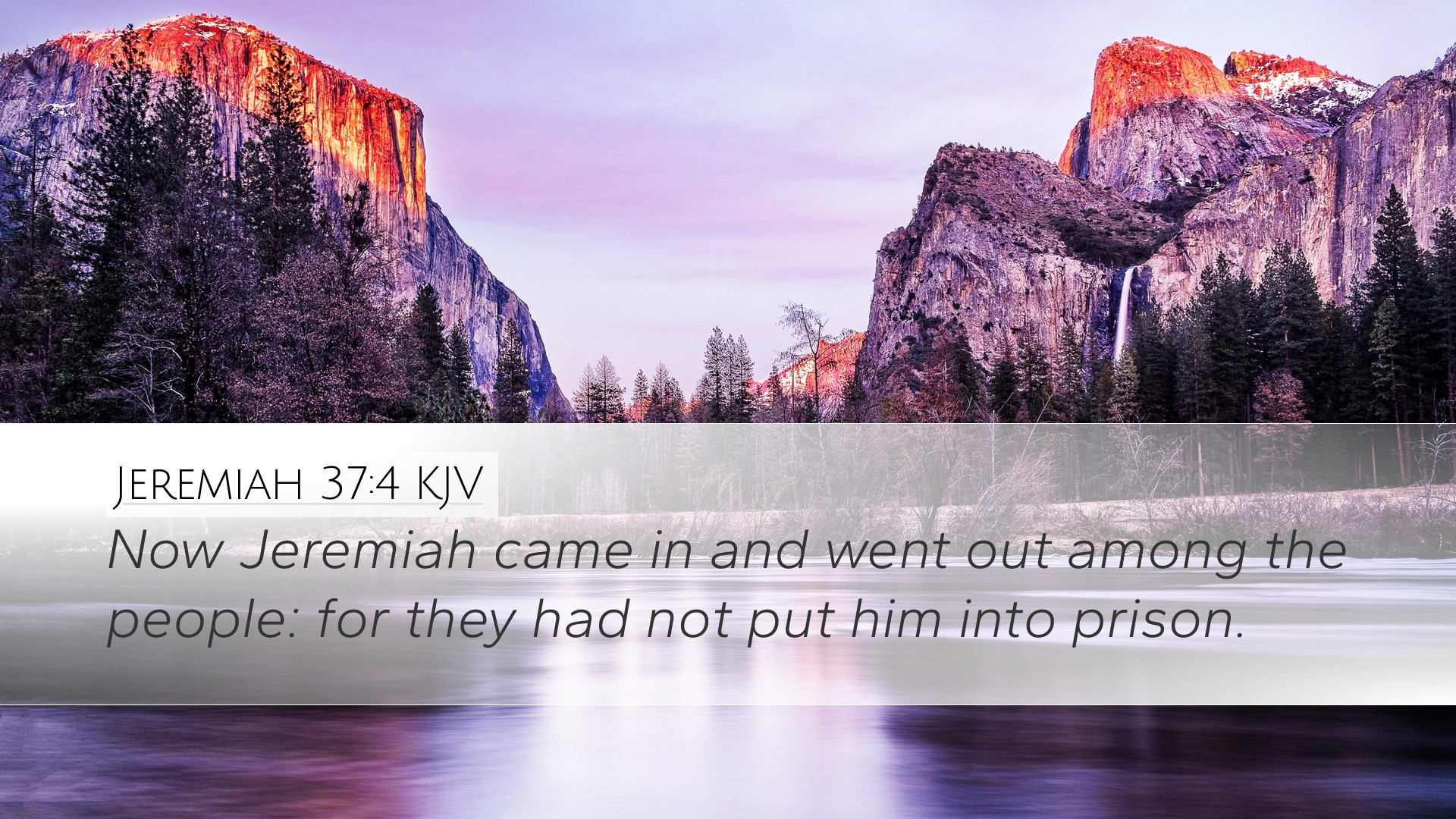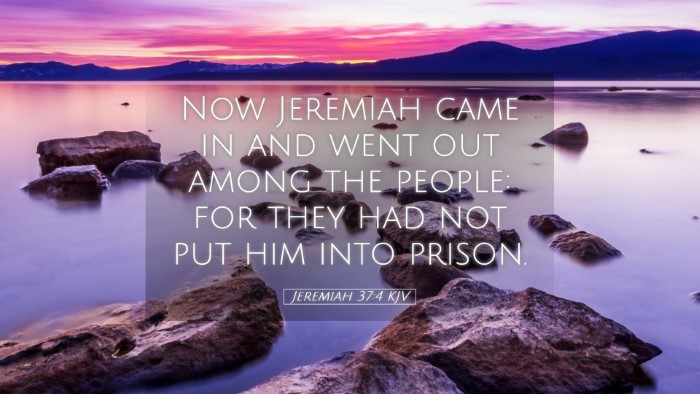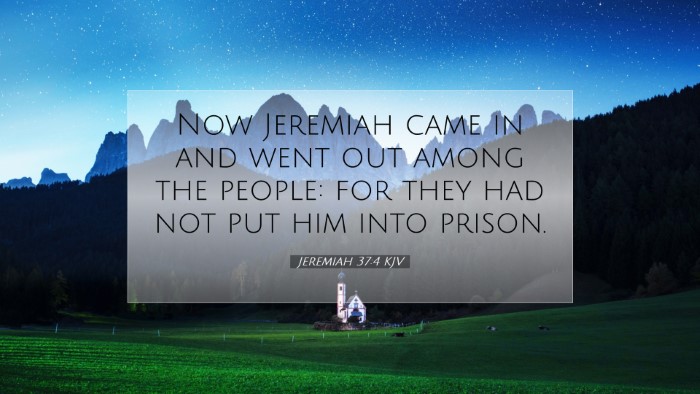Commentary on Jeremiah 37:4
Jeremiah 37:4 states:
"Now Jeremiah came in and went out among the people: for they had not put him into prison."
This verse serves as a pivotal moment in the life of the prophet Jeremiah and provides a window into the tumultuous context of Judah during a critical period of its history. Below, we synthesize insights from esteemed commentaries to glean deeper understanding and application from this scripture.
Contextual Background
During the time of Jeremiah, Judah was under siege from the Babylonian empire, and internal strife was rampant. The political climate was charged as King Zedekiah was struggling to negotiate peace and maintain his rule amidst foreign threats. Jeremiah had been prophesying the impending doom of Jerusalem, a task that made him both a target of scorn and an object of hopeful curiosity.
Insights from Commentators
Matthew Henry's Commentary
Matthew Henry notes that Jeremiah's movement among the people indicates his role as a prophet who remained accessible even in tumultuous times. Henry highlights that while other prophets may have been isolated or imprisoned for their messages, Jeremiah’s experience showcases God's providence in allowing him a degree of freedom.
- Public Perception: Henry emphasizes how Jeremiah's presence among the people was crucial. He served as a reminder of God’s warnings, and his access allowed him to communicate divine messages directly to a nation in despair.
- The Role of the Prophet: Jeremiah’s ability to interact freely illustrates a significant aspect of prophetic ministry—living as a witness to the truth amid societal chaos.
Albert Barnes' Notes on the Bible
Albert Barnes provides a detailed examination of the sociopolitical setting. He points out that Jeremiah's freedom at this juncture illustrates a temporary reprieve, suggesting that the prevailing circumstances did not diminish God’s purpose for Jeremiah's life.
- God's Protection: Barnes asserts that God had a special purpose for Jeremiah, protecting him from imprisonment to continue his vital work. His freedom allowed him to serve as a beacon of hope and warning to the people.
- Judah’s State: The commentary notes the apathy of the people towards Jeremiah's messages. They were in a state of denial, reflecting a broader theme of resistance to the prophetic word.
Adam Clarke's Commentary
Adam Clarke delves into the theological implications of the verse. He presents the idea that God’s servants, particularly prophets like Jeremiah, may not always face immediate consequences for their bold proclamations against sin.
- Divine Timing: Clarke emphasizes that while Jeremiah was free now, there would come a time when God’s justice would manifest fully; this is a reminder of the patience of the Lord in awaiting repentance.
- Prophetic Suffering: Clarke discusses how the prophet’s suffering aligns with the biblical theme of prophetic call. Jeremiah's experience of eventual imprisonment highlights the cost of faithfulness to God’s message.
Theological Reflections
From these commentaries, several theological reflections can be drawn:
- Accessibility of God's Messages: Jeremiah being among the people signifies the importance of accessibility to God’s word. Pastors and theologians are called to embody this accessibility through preaching and teaching.
- Endurance in Ministry: Jeremiah's perseverance amidst adversity serves as a model for modern ministers. The pressures of ministry can often lead to discouragement, yet the prophet demonstrates unwavering commitment.
- Divine Sovereignty: The circumstances surrounding Jeremiah’s freedom and future imprisonment illuminate the sovereignty of God in guiding events. This encourages trust in divine sovereignty even when situations seem dire.
Conclusion
In closing, Jeremiah 37:4 encapsulates a moment of profound significance in the prophetic narrative. Through the insights provided by respected commentators, we are reminded of the essential role of prophets in speaking truth to power, the importance of their accessibility, and the overarching theme of divine sovereignty at work in human affairs. As we reflect on this passage, may we be encouraged to engage faithfully in our spiritual vocations and to trust in God's everlasting promises amidst the complexities of our own contexts.


